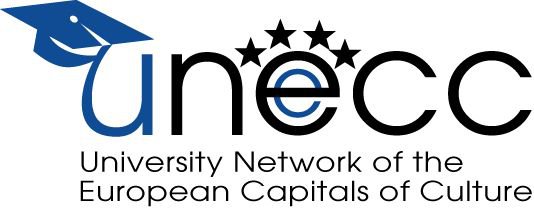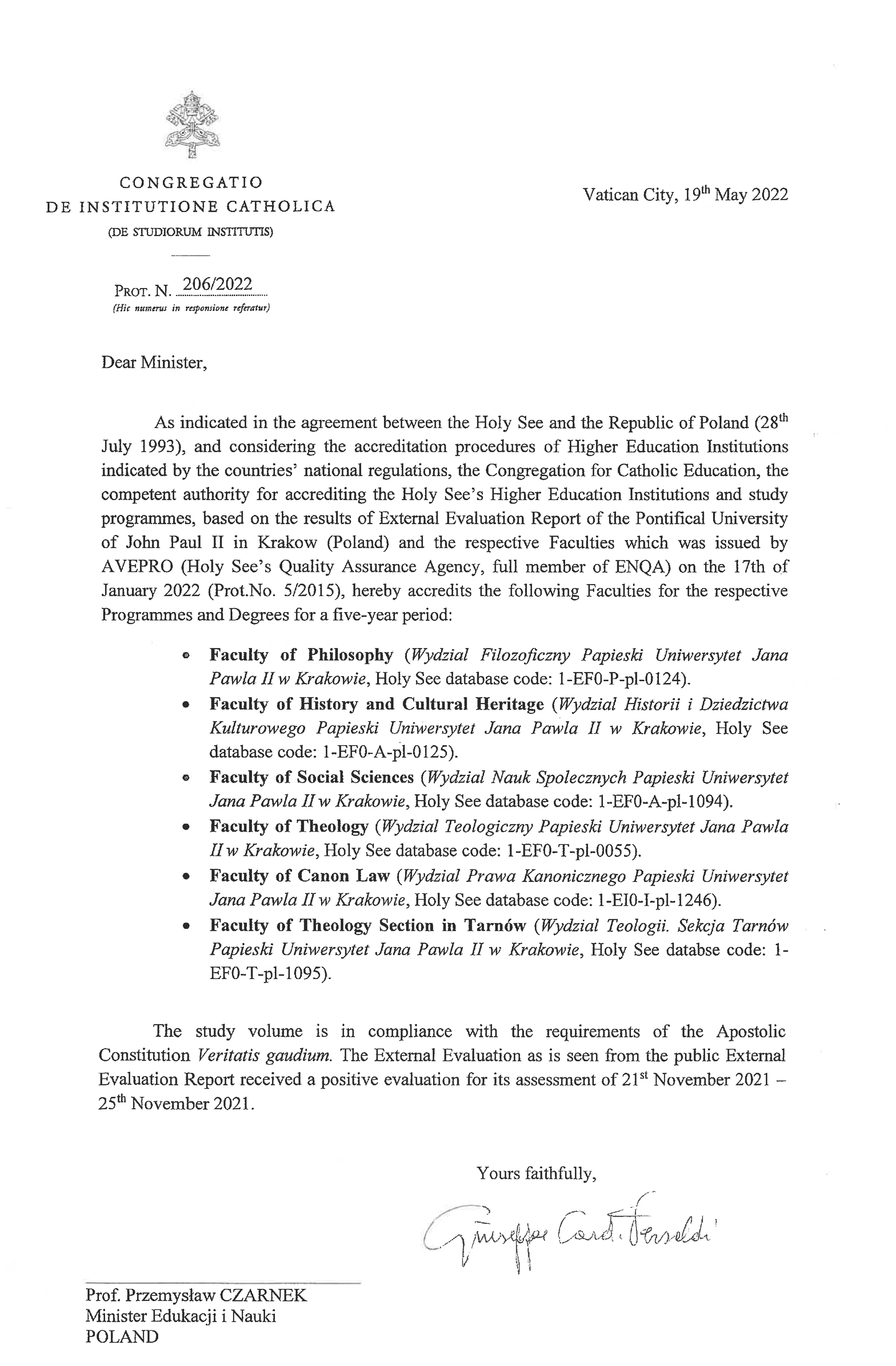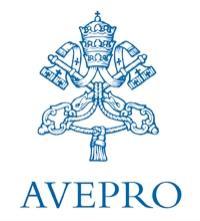Organizations and Accreditations
In line with paragraph 6 of the Statute of UPJPII, "the University may be a member of Polish and international organizations of higher education institutions, while maintaining its own ecclesiastical identity." UPJPII is a member of and actively participates in the activities of two of the world's largest federations of Catholic universities.
 |
International Federation of Catholic UniversitiesIt was at the initiative of the Università Cattolica Del Sacro Cuore (Milan, Italy) and of the Katholieke Universiteit Nijmegen (Nijmegen, Netherlands) that preliminary steps were taken in 1924 to bring together the Catholic universities in a Federation to discuss specific issues of common concern. These endeavours were concretised the following year during a meeting at the Institut Catholique de Paris where 14 universities from the various parts of the world were represented at a first General Assembly. The role of the Federation is :
|
 |
European Federation of Catholic UniversitiesThe European Federation of Catholic Universities (EFCU or FUCE) was created in 1991 with the conviction of being able to offer anew contribution to the network of Catholic universities, building on the positive path of European integration, now close to the achievement of the European Union. At the end of the 1990s, the FUCE conducted a comparative study that revealed the wealth and commonalities between the different Catholic universities in Europe. It thus showed the need to strengthen existing links, even after the implementation of the Bologna Process, which since June 1999 aimed at making academic qualifications of European universities comparable and encouraging the mobility of students, teachers and researchers. EFCU brings together Catholic universities in Europe and Lebanon. |
 |
University Network of the European Capitals of Culture The University Network of the European Capitals of Culture (UNeECC), was founded in Pécs Hungary in December 2006, by 15 founding members. The creation of UNeECC originates from the idea that it would be useful for Universities and establishments of Higher Education based in European Capitals of Culture to use this well known and prestigious European institution to stimulate new forms of academic institutional collaboration. The general aim of UNeECC is:
|
On 17.01.2022 The Pontifical University of John Paul II in Krakow was awarded the international accreditation from AVEPRO for a period of 5 years. This certification means that all faculties of UPJPII (Faculty of Philosophy, Faculty of History and Cultural Heritage, Faculty of Social Sciences, Faculty of Theology, Faculty of Canon Law, Faculty of Theology Section in Tarnow) and study programs conducted at them are in accordance with the Apostolic Constitution Veritatis Gaudium and the education at the units meet the highest academic standards.


The Holy See’s Agency for the Evaluation and Promotion of Quality in Ecclesiastical Universities and Faculties (AVEPRO l’Agenzia della Santa Sede per la Valutazione e la Promozione della Qualità delle Università e Facoltà Ecclesiastiche), established by the Supreme Pontiff Benedict XVI on 19 September 2007, is an institution connected to the Holy See, as provided by arts. 186 and 190-191 of the Apostolic Constitution Pastor Bonus. The Agency’s duty is to promote and develop a culture of quality within the academic institutions that depend directly on the Holy See and ensure they possess internationally valid quality criteria.
The Holy See’s adhesion to the Bologna Process was determined by its desire to pursue and achieve certain objectives included in the Bologna Process, such as:
- respect for the specificity and diversity of the various university systems;
- creation of a common European Higher Education Area to encourage the involvement of university institutions in an international dimension;
- focus on quality as a value intrinsic to and necessary for research and innovation in universities.
AVEPRO’s activities are regulated by the Apostolic Constitution Veritatis gaudium and it conforms to the European Standards and Guidelines, as well as other international agreements concerning rules and procedures for the evaluation of quality in higher education.
The Agency collaborates with academic institutions in defining internal procedures to evaluate the quality of teaching, research and services, which is done through the development and use of appropriate operational tools (guidelines, questionnaires, databases, information networks, etc.). AVEPRO also organizes external evaluation procedures for individual academic institutions and arranges visits to them by experts.
In accordance with the Agency’s independent nature, it collaborates with all actors interested in the life and progress of ecclesiastical universities and faculties: the institutions themselves, the Congregation for Catholic Education, the Episcopal Conferences, all regional, national and international authorities, and all those who work in the various dioceses of countries in which ecclesiastical academic institutions are based.
To learn more about AVEPRO, please visit its official WEBSITE.
To read AVEPRO’s reports of ecclesiastical universities and faculties, please go to the REPORTS section.



